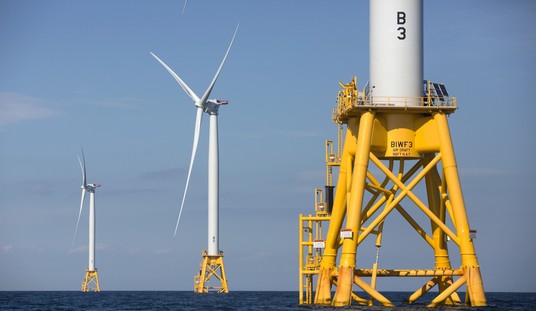On December 27, 2016, Ohio Governor John Kasich vetoed House Bill 554, an energy bill designed to ease state restrictions on electric utilities. Currently, power companies in Ohio must meet increasingly strict annual standards for investing in renewable energy, such as solar, wind, etc., and for helping customers reduce energy use.
Environmental special interest groups are ecstatic over Kasich’s energy bill veto. They probably especially like the part where the state tells utility companies they have to fund their own suicide by showing customers how to use less of their services or products, a bad habit government is increasingly applying across many industries. Nevertheless, Kasich justified the veto by claiming it would have weakened the state’s clean-energy standards, which in turn would have hurt the state’s near and long-term economic competitiveness.
The energy bill veto was joined by Kasich’s veto of Senate Bill 329, a bill that would have set up a process for lawmakers to regularly review certain state agencies for possible elimination. Kasich said Senate Bill 329 needlessly duplicates an aspect of the budget process.
When governments promote “clean” or “renewable” energy bills, you get neither the economic competitiveness of a free market or smaller government. And simply relying on the budget process to rein in government has little basis in history. Thus, Kasich’s reasoning for his vetoes falls under Orwellian logic, somewhere along the lines of “Ignorance is Strength.”
When you couple these two vetoes with other Kasichisms, like his Medicaid expansion under ObamaCare, and the center to center-left positions he took during his presidential run, one can’t help but see a pattern emerging. A pattern that begs the question, with Republicans like Kasich, who needs Democrats?
Truthfully, that question may not be entirely fair. When Kasich was in the House of Representatives, he was seen as strong on fiscal issues, even working with über-left Ralph Nader to reduce crony capitalism through the elimination of corporate tax loopholes. Furthermore, early in his tenure as governor, he initiated a number of income and estate tax reforms. More recently, he signed a 20-week abortion restriction bill.
But in the grand scheme of things, if conservatism means anything, it means a free market and less government; all other things conservative and good require those conditions. John, what happened to you?
I know what happened. The same thing that happens to so many conservative politicians. They begin to see government as a viable solution to many of our economic and social ills. Turning to Orwell again, they begin to, if not love Big Brother, to at least accept him as part of the family. Kasich has recently gone one step further in his love and acceptance by justifying his decisions by using biblical references. But helping your fellow man is one thing; helping him with someone else’s money through the power of the state is another.
In regards to renewable energy, how can anyone be against government forcibly promoting “clean” renewable energy with the eventual goal of eliminating “dirty” fossil fuels? The answer has two parts.
The first part has to do with what government can and can’t do right (or should have the power to do at all). Big benevolent government supporters use the spin-offs from programs like the interstate system, the Internet, and the space program as justification for other programs such as developing renewable energy sources to replace fossil fuel.
The analogy is one of apples and oranges. The highway system, for example, was created by the 1956 National Interstate and Defense Highways Act (note “Defense” in the title). President Eisenhower supported this project because of his early military experience in trying to transport troops and supplies across the country. The interstate system was not built so vacationing families could gas up at Speedway, eat at McDonald’s, and stay at a Holiday Inn Express while visiting Disneyland.
Al Gore claims to have invented the Internet. What he really meant was as a senator, he voted to fund extensions to the military’s ARPANET (Advanced Research Projects Agency Network). ARPANET was focused on basic information exchanges between large mainframe computers with high military survivability requirements, not on people who wanted to bid for an old Etch A Sketch on eBay.
These and many other successful government programs had two things in common. First, they had narrowly focused objectives. Second, they fell within the proper functions of government; in these examples, it was defense. (We shouldn’t lose sight of the fact that these projects were funded to directly or indirectly destroy things and kill people.)
An example of a large scale successful non-defense government effort was the polio vaccination program of the 1950s and 1960s—a program I participated in. Adults were given shots and children were given sugar cubes containing the vaccine. But the polio program’s objectives were narrow, well defined, and something only government could do. (I can see my libertarian friends shaking their heads as I write this.)
But whatever their original purposes, it took private sector entrepreneurs to turn these government funded projects into national industries. That’s because governments do projects, but entrepreneurs take risks, build businesses, produce wealth, and create jobs for millions using market forces to help make their business decisions. These market-based efforts have provided trillions in tax revenues to the government.
When governments go beyond their legitimate capabilities, you end up with disasters. A program to provide a safety net for people while they get back on their feet might be doable, but the War on Poverty has been one gigantic failure, as will a war on fossil fuels. Which leads to the second issue with renewable energy—an issue of physics.
On this subject, I have to be very careful. Physicist Stephen Hawking once said that for every equation you include in a book, you lose half your readership. I promise I won’t have any equations in this article.
Simply put, although renewable energy sources have selected applications, there is not enough energy in renewable energy sources to power modern societies. The reason why nuclear bombs are so energetic is because the atomic nucleus is where the energy is. Breaking chemical bonds is the next large source of energy. When your spark plug ignites, it’s basically breaking long molecules of carbon-carbon bonds releasing a mini-explosion in every piston cycle.
Renewable energy sources are the 98-pound weaklings of the energy world, and many environmentalists understand that. But that doesn’t bother them because the sooner we lower our living standards, take public transportation, and move to tiny houses, the sooner the oceans will lower, wars will cease, and Mother Earth will heal. Unfortunately for environmentalists, the reason why we live the way we do is because living in caves is for Neanderthals—and they’re extinct.
Fake science is really the motivation behind much of the renewable energy movement. Actually, it’s fake science and government subsidies. Real science tackles problems and produces an understanding of nature that advances our quality of life. If Kasich wants Ohio to be competitive, I recommend understanding real science and opening up the free market. If we have to reduce carbon dioxide emissions, let’s start with reducing government.








Join the conversation as a VIP Member